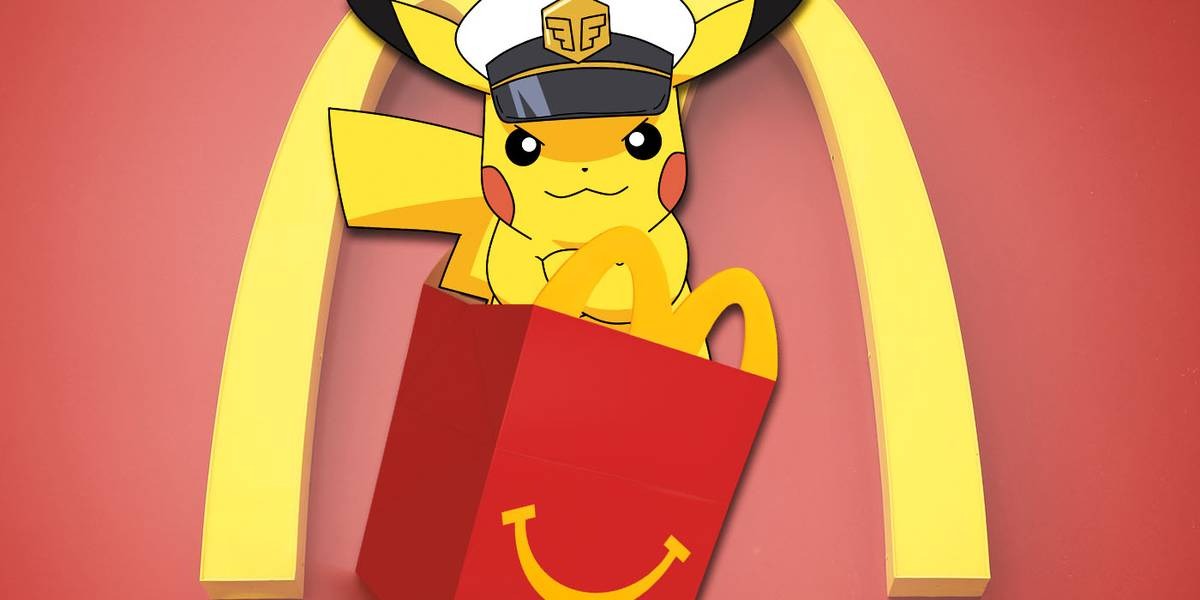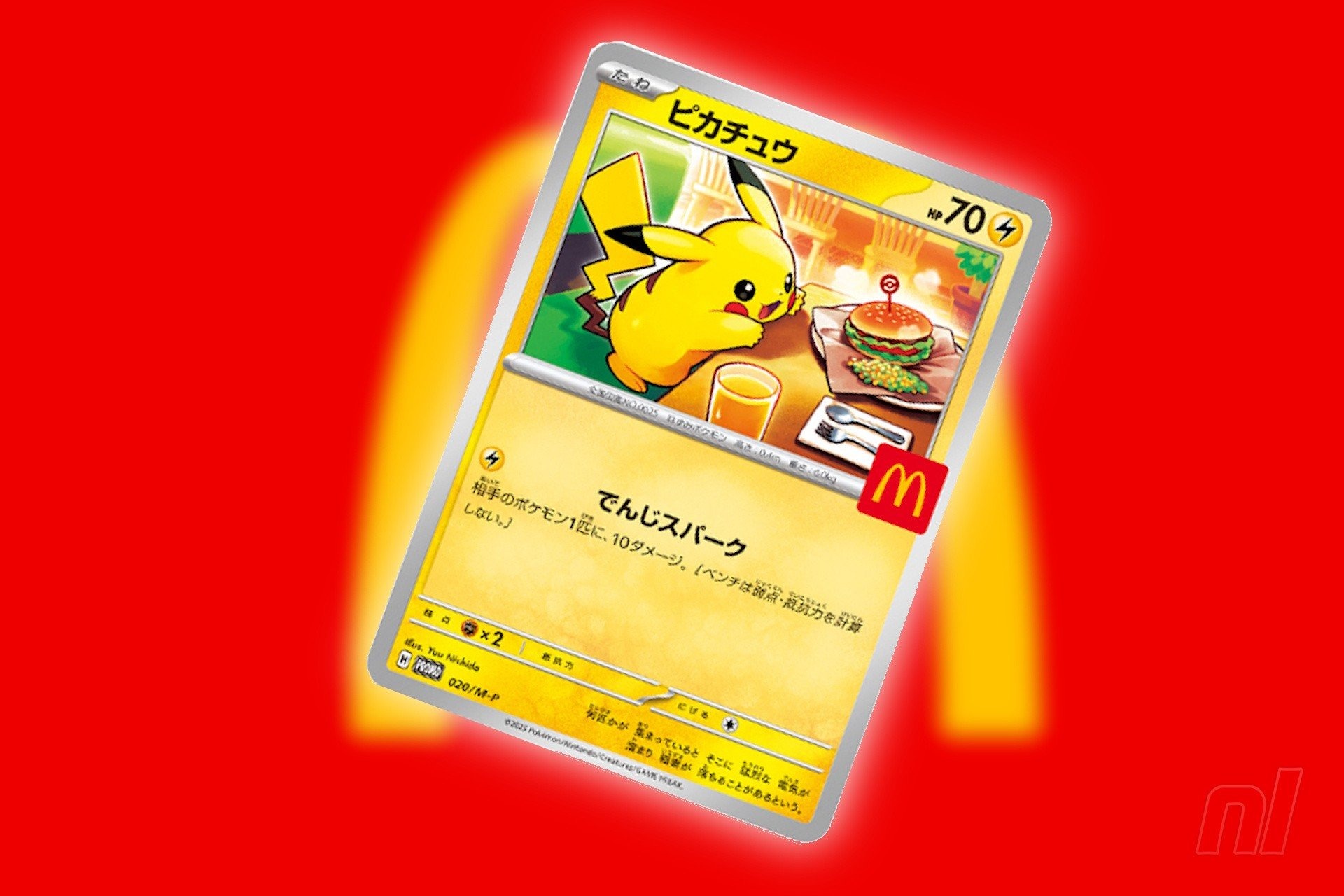A Promotional Nightmare: The Pokemon McDonald’s Japan Happy Meal Promotion Ends in Disaster
Popular Now
 BeamNG.drive
BeamNG.drive
 The Legend of Zelda
The Legend of Zelda
 Grand Theft Auto VI
Grand Theft Auto VI
 Among Us
Among Us
 Call of Duty
Call of Duty
 Sonic the Hedgehog™ Classic
Sonic the Hedgehog™ Classic
 Genshin Impact
Genshin Impact
 Gacha Club
Gacha Club
 Schedule I
Schedule I
 God of War Ragnarök
God of War Ragnarök
 In a stunning turn of events that has left fans furious and McDonald’s in an apologetic state, a highly-anticipated Pokemon Trading Card Game promotion in Japan has ended in complete chaos. The promotion, which was meant to run for three days from August 9 to 11, was abruptly terminated by McDonald’s Japan after less than 24 hours. The disaster was a perfect storm of overwhelming demand, rampant scalping, and, most disturbingly, widespread food waste, creating a public relations nightmare for both the fast-food giant and The Pokemon Company.
In a stunning turn of events that has left fans furious and McDonald’s in an apologetic state, a highly-anticipated Pokemon Trading Card Game promotion in Japan has ended in complete chaos. The promotion, which was meant to run for three days from August 9 to 11, was abruptly terminated by McDonald’s Japan after less than 24 hours. The disaster was a perfect storm of overwhelming demand, rampant scalping, and, most disturbingly, widespread food waste, creating a public relations nightmare for both the fast-food giant and The Pokemon Company.
The promotion promised customers who purchased a Happy Meal, known as a “Happy Set” in Japan, a pack of two exclusive Pokemon cards, including a highly coveted special Pikachu card. This type of collaboration has been a fan-favorite in the past, but the intense demand for the limited-edition cards, coupled with the ongoing global craze for Pokemon collectibles, led to an immediate and unmanageable frenzy. The situation quickly spiraled out of control, as stores were overrun with customers, and reports of scalpers buying meals in bulk and discarding the food went viral across social media, drawing widespread condemnation.
 The Cascade of Problems: Long Lines, Scalping, and Food Waste
The Cascade of Problems: Long Lines, Scalping, and Food Waste
The problems began the moment the promotion launched. Reports from across Japan painted a picture of mayhem:
- Overwhelming Demand and Stock Shortages: Despite a purchase limit of five Happy Meals per person, many stores were completely sold out of the cards within hours. Scalpers reportedly bypassed the limits by using multiple mobile app accounts and placing numerous orders, or by working in groups to clear out the stock.
- Massive Food Waste: The most egregious and widely criticized aspect of the disaster was the apathetic discarding of the Happy Meals themselves. Photos and videos circulated online showing mountains of untouched burgers, fries, and drinks piled on tables or, even worse, dumped in trash bins and on the streets near the restaurants. This act of wastefulness drew a sharp rebuke from the public, particularly in a country with a strong cultural aversion to food waste.
- Unruly Crowds and Employee Distress: The chaos led to tense situations inside and outside McDonald’s restaurants. Employees, who were reportedly under immense stress, struggled to enforce purchase limits and manage the aggressive crowds. Some reports even suggest that police were called to quell confrontations between customers.
- Rampant Reselling: Almost immediately, the exclusive cards began appearing on online flea market apps and auction sites for grossly inflated prices. The special Pikachu card alone was being resold for a price significantly higher than the cost of the entire Happy Meal, demonstrating the financial incentive behind the scalping frenzy.
 The Aftermath: An Apology and Promises of Stricter Measures
The Aftermath: An Apology and Promises of Stricter Measures
In response to the public backlash, McDonald’s Japan issued a public apology, stating that their preparations had been “inadequate.” The company acknowledged that the situation went against their philosophy of providing a fun dining experience for families and that they do not tolerate the reselling or disposal of food. In their statement, McDonald’s promised to implement stricter measures in the future to prevent similar incidents, including more rigid purchase limits and a potential crackdown on mobile and delivery orders during promotions. They also stated they would work with online marketplaces to curb the reselling activities of malicious users.
This incident is not an isolated one. Similar frenzies have occurred with previous collaborations, such as the Chiikawa Happy Meal toy promotion earlier this year. However, the sheer scale of the chaos and the shocking level of food waste in the Pokemon promotion have made it a particularly damaging event. The Pokemon Company has yet to release a detailed statement, but the ongoing issue of scalping and product shortages has been a persistent problem for the brand, and this latest fiasco highlights the need for a more comprehensive strategy to address the issue.
For now, what was meant to be a joyful celebration of the Pokemon TCG’s enduring popularity has become a cautionary tale. The disaster serves as a stark reminder of the immense demand for limited-edition collectibles and the need for companies to be better prepared to manage the consequences of that demand, particularly when it comes to collaborations that involve the fundamental values of a family restaurant.









